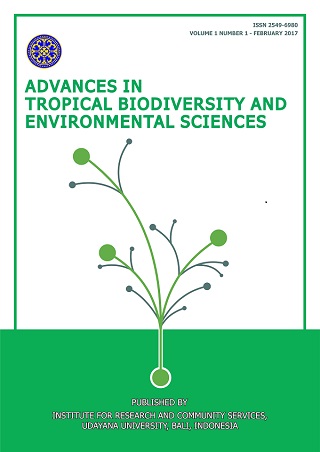Utilization of Betel Leaf Extract as Botanical Pesticides to Control meloidogyne spp. and Tomato Plant Production
Abstract
Meloidogyne spp. Are among the polyphagous pest that has spread around the world and has been reported to attack cultivated plants with economic values. Various ways had been applied to control the Meloidogyne spp. nematodes but has not yet showed any effective results. We are currently using synthetic pesticides because of its fast response and ability to maintain plant productions. The improper application of synthetic nematicides would have a negative impact on the environment. The aim of this research is to know the effectiveness of betel leaf concentration (Piper betel L.) to curb the development of nematodes on Root-Knot Meloidogyne spp and the growth of tomato plants. This is a descriptive research, with the utilization of betel leaf extract (Piper betel L,) by concentration treatment of 0 %, 5 %, 10 %, 15 % and 20%, each of which are repeated five times. Complete Random Sampling (CRS) with the F test is used and continued with the Duncan test at a 5% rate. The result shows that the betel leaf extract of the 20% concentration was the most effective either on the growth of plants and to the root-knot nematodes. The suppression of growth in the ground was 80,06% and the lowest was recorded with the 5% concentration ( 2,32 %); the suppression of root-knot was 45,45 % while the lowest was with the 5% concentration (12,12 %); the suppression of nematodes population in the roots was 45,45% while the lowest was with the 5% concentration (39,76 %); and last was the suppression of egg mass which was 61,73 % while the lowest was shown in the 5% concentration (18,32 %). It can be concluded in this research that the most effective betel leaf extract concentration was at 20%.
Keywords: Meloidogyne spp., Piper betel L., CRS













